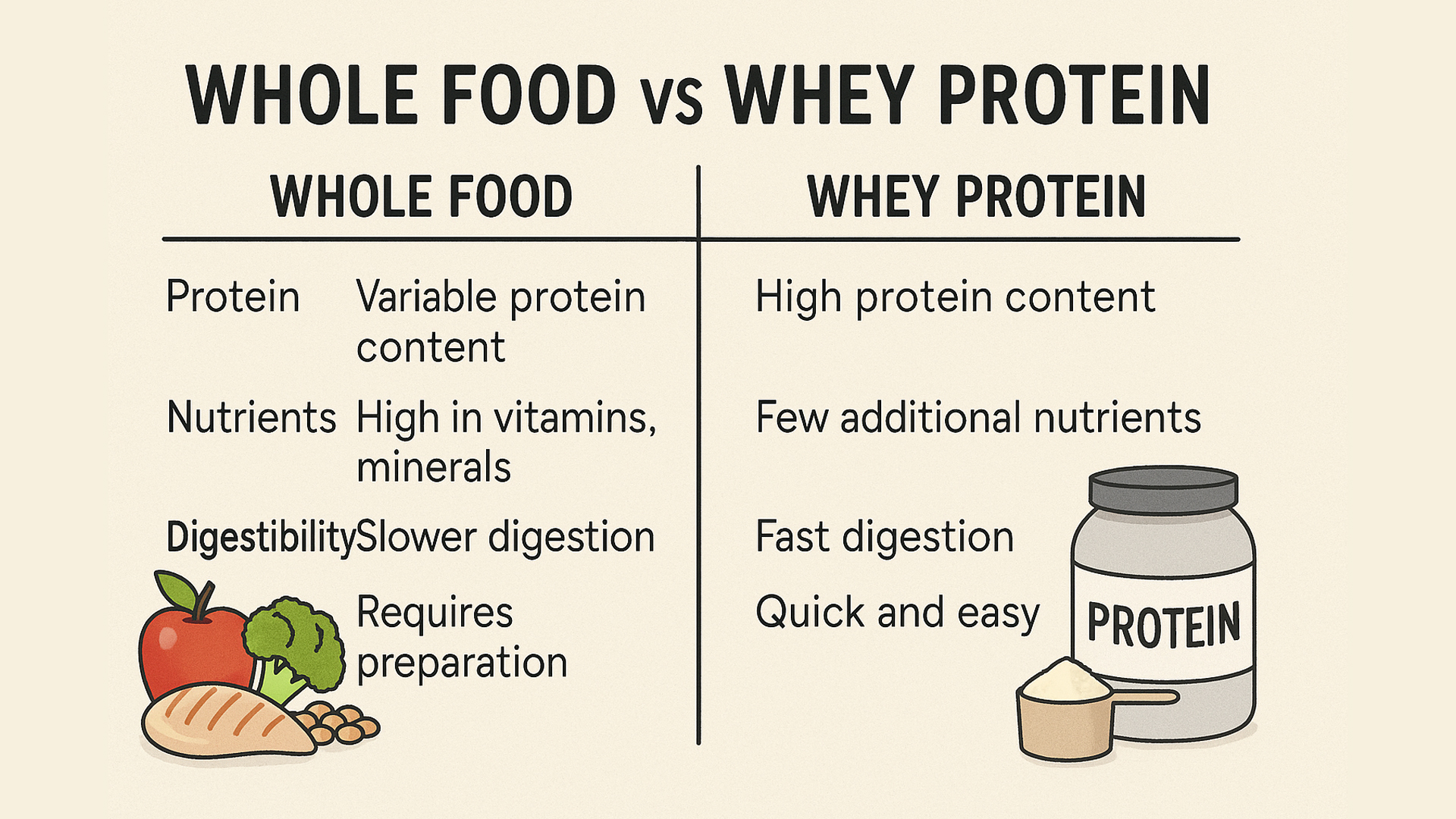22
Apr
Should You Take Whey Protein on Rest Days?
Introduction: The Common Dilemma
If you’ve recently started working out or are a seasoned fitness enthusiast, you’ve probably asked yourself: Should I take whey protein on rest days? This question often arises when you’re trying to optimize your muscle gains, recovery, and nutrition plan. Some believe protein supplements are only useful post-workout, while others advocate for consistent intake—even when you’re not hitting the gym.
In this in-depth guide, we’ll explore the science behind whey protein, how your body uses it on rest days, and why skipping it might not be the best idea. Get ready to uncover the facts and make smarter choices about your supplementation routine.
What is Whey Protein and Why Do You Need It?
Whey protein is a high-quality protein derived from milk during the cheese-making process. It’s rich in all nine essential amino acids and has a high Biological Value (BV), meaning it’s easily absorbed and utilized by the body.
Key Benefits of Whey Protein:
Supports muscle growth and repair
Enhances recovery
Helps in maintaining lean muscle mass
Can assist in weight management
Boosts the immune system due to its lactoferrin and immunoglobulin content
Whether you’re bulking, cutting, or simply trying to stay healthy, protein is a must—and whey protein offers a convenient and effective way to meet your daily requirements.
Do You Need Whey Protein on Rest Days?
Yes, and Here’s Why
Your muscles don’t grow during workouts—they grow during rest. Recovery is when your body repairs the micro-tears in muscle tissue caused by exercise. This process demands adequate protein, regardless of whether you’re lifting weights or lounging on the couch.
Here’s how taking whey protein on rest days can support your goals:
- Muscle Recovery
On rest days, your muscles are still healing. Supplying them with amino acids ensures quicker recovery and better muscle adaptation. - Protein Synthesis
Muscle protein synthesis (MPS) continues even when you’re not training. According to a study published by the Journal of Applied Physiology, consistent protein intake helps maximize MPS, aiding muscle growth even on rest days. Source - Maintain Nitrogen Balance
To stay in an anabolic (muscle-building) state, your body must maintain a positive nitrogen balance. Protein intake helps achieve this, making whey an essential addition even on non-training days. - Avoid Muscle Breakdown
Skipping protein can lead to muscle catabolism, where your body breaks down muscle tissue for fuel—something you definitely want to avoid.
How Much Whey Protein Should You Take on Rest Days?
The amount of protein you need doesn’t change just because it’s a rest day. The general guideline remains:
- 8 to 1.2 grams of protein per pound of body weight daily for those looking to build or maintain muscle mass.
If you’re consuming most of your protein through whole foods, you can supplement with whey to fill the gap. Typically, one to two scoops (20–50g) of whey protein is enough to meet your needs, depending on your diet.

When to Take Whey Protein on Rest Days?
While timing isn’t as critical on rest days as on training days, consistency is key. Here are some ideal times to consume whey protein:
- Morning: After fasting overnight, your body needs nutrients to stop muscle breakdown.
- Mid-day snack: Keeps your protein levels stable throughout the day.
- Before bed: Helps with overnight muscle recovery.
Whole Foods vs. Whey Protein on Rest Days
Whole foods should always be your primary source of nutrients, but whey protein offers convenience, digestibility, and efficiency.
| Whole Foods | Whey Protein |
| Takes longer to prepare | Quick and easy to mix |
| High in other macros (fats/carbs) | Lean source of pure protein |
| May lack complete amino profile | Complete amino acid profile |
| Slower digestion | Rapid absorption |
Combining both whole food sources and whey is often the best approach.

What Happens If You Skip Whey Protein on Rest Days?
Skipping protein intake on rest days may lead to:
- Slower muscle recovery
- Suboptimal muscle gains
- Increased risk of muscle loss
- Hunger and poor satiety
- Negative impact on long-term fitness goals
Whey protein helps your body maintain a steady flow of amino acids, which is essential even when you’re not training.
Whey Protein Types for Rest Days
There are several types of whey protein available:
- Whey Protein Concentrate (WPC) – Affordable and contains some carbs and fats.
- Whey Protein Isolate (WPI) – Higher protein content with minimal carbs and fats.
- Hydrolyzed Whey Protein – Pre-digested for faster absorption.
On rest days, Whey Protein Isolate is often preferred for its high purity and low calorie content—perfect if you’re watching your intake while still aiming for optimal recovery.
Tips to Make the Most of Whey Protein on Rest Days
- Combine with complex carbs like oats or fruits for a balanced snack.
- Stay hydrated—whey can pull water into muscles, so drink enough fluids.
- Don’t rely solely on supplements—use whey to complement a nutrient-rich diet.
- Listen to your body—if you feel sore or fatigued, don’t skip your protein.
Expert Opinions on Whey Protein Usage
Nutrition experts and fitness coaches agree: consistency is key. Maintaining a regular protein intake every day supports a healthy metabolism, preserves lean muscle, and improves overall body composition.
Registered dietitian and fitness nutritionist Dr. Mike Roussell says:
“You don’t build muscle in the gym. You build it when you fuel properly on recovery days.”
Final Thoughts: Should You Take Whey Protein on Rest Days?

Absolutely. Whey protein is not just a post-workout supplement—it’s a daily essential for anyone serious about fitness, muscle maintenance, and overall well-being. Skipping it on rest days can sabotage your results and slow down your progress.
Keep your intake consistent, combine it with whole foods, and align your diet with your fitness goals for maximum benefits.
Outbound References for Further Reading
- Journal of Applied Physiology: Protein Intake and Muscle Protein Synthesis
- National Institutes of Health: Protein and Amino Acid Requirements
- Healthline: Whey Protein – Health Benefits Based on Science
